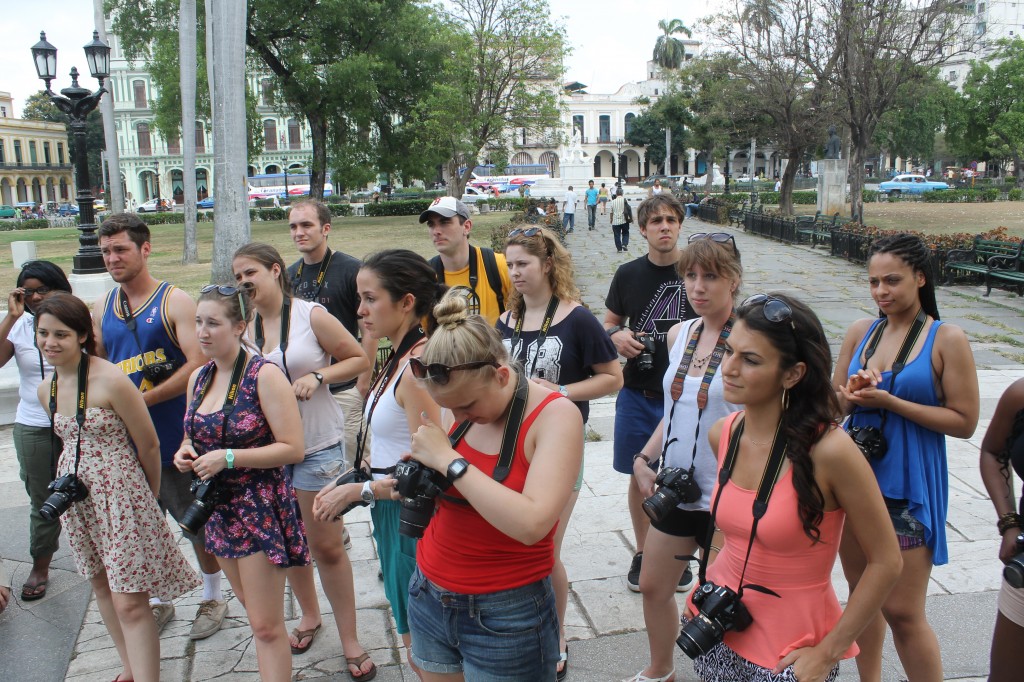By: Delia Harrington, Massachusetts, USA, SSH Correspondent

Recently I read an article on xoJane about street harassment while studying abroad. It saddened me to hear how isolated the author felt, and how quick she was to cover her treatment with a joke. But I also recognized myself and my students in her.
I have been the girl who downplays street harassment abroad, even though I’m a vocal opponent of the same behavior when I am home. So I started thinking about why we stay silent or laugh at off, and what makes street harassment different when studying or traveling abroad.
While there are some similarities, there are a few dimensions added to the reactions when a person is harassed outside of their own community. Among these are ethnocentrism, racism, and a belief that women should not be traveling, especially not alone or somewhere dangerous. The foreign nature of the location, culture, and perhaps language of the harasser can add a level of fear and doubt for the harassed person. Some people who are not harassed at home will be harassed more frequently or for the first time abroad, because of how they are perceived in this new location.
We don’t speak up because we don’t want to hear from the naysayers back home.
If you’re traveling, you likely heard a bunch of horror stories about it before you left from everyone from your mom to casual acquaintances you meet at parties. If you are female and going alone, you probably heard it more often and more stridently. That goes double if you were going to a developing country, a Latin country, an Arab country, a Muslim country, or any place deemed otherwise “dangerous” or “culturally backwards.”
If we speak up about anything that is even remotely negative, these naysayers come back out of the woodwork. See, it’s dangerous. See, those people are terrible to women. See, that’s why women shouldn’t travel alone. See, you should have just stayed home.
We don’t speak up because we are given terrible advice.
As someone who has worked abroad, participated in five different study abroad programs, helped to lead three more study abroad programs, and worked as a study abroad administrator, I have heard it all when it comes to advising women on their safety abroad. Some of the advice is incredibly helpful, but some of the advice is straight up apologist, victim-blaming crap. Over the years I have heard faculty, staff, and administrators say things including:
* They should wear less revealing clothing
* That’s just the culture here so they should get used to it
* The men here just can’t help it
* That’s their problem and they need to handle it on their own
* They need to let it go–they shouldn’t react angry or cause a scene.
We don’t speak up because we aren’t taken seriously.
Perhaps worse than terrible advice is when someone laughs off your very real concerns. I’ve seen this happen most egregiously when the bystander does not speak the language and therefore doesn’t actually have any idea what is being yelled. It can also occur when bystanders so strongly identify with the host country that they are unable to speak critically about its shortcomings. And finally if a bystander is never harassed themselves, they may give it little thought. It is incredibly easy to say something is not a big deal or does not happen if it does not happen to you, and that makes it harder for someone to speak up the next time harassment happens.
I have stayed quiet for these reasons in the past. But I’m trying to speak up now, and I hope you will too. Chances are, others have experienced this type of behavior too.
In study abroad and international travel, we all think everyone else is having this perfect, fabulous time because that’s all anyone puts on Facebook. We feel obligated to have a perfect time because of the effort and money we (and perhaps others) put into getting abroad. Feeling like the only one who gets harassed can be isolating, shaming, or make a person believe they are overreacting. Feeling like we can’t speak up because it will taint how people see our host country or it will seem ungrateful can make silence seem like the best option.
But remember: talking about street harassment is one of the only ways to diminish its power over us.
I don’t plan to ever stop traveling, and I cannot recommend enough that everyone study, live, work or volunteer abroad at some point if they are able to. I won’t stop going to countries that are politically tumultuous, economically underdeveloped or culturally conservative compared to my home in the United States. But I think it’s time that we are honest with ourselves and each other about what traveling abroad is really like for women, the good and the bad. I believe that the only way to fully reclaim our right to explore this great big, wondrous world is to speak up and support each other, as loud and as often as we can.
Delia Harrington is a recent graduate of Northeastern University and calls Boston home. In recent years, she has found herself studying, working, and volunteering in Egypt, Cuba, France, Benin, the Dominican Republic, Turkey, Germany, and Greece. You can read more of her writing on her blog, or follow her on Facebook and Twitter, @deliamary.

[…] Bostonian Phoenix Tso’s experience with harassment in the Hub, catch Hollaback! Boston friend Delia’s first piece for Stop Street Harassment, and enjoy an amazing collection of photos of female riveters in action during WWII. Don’t […]